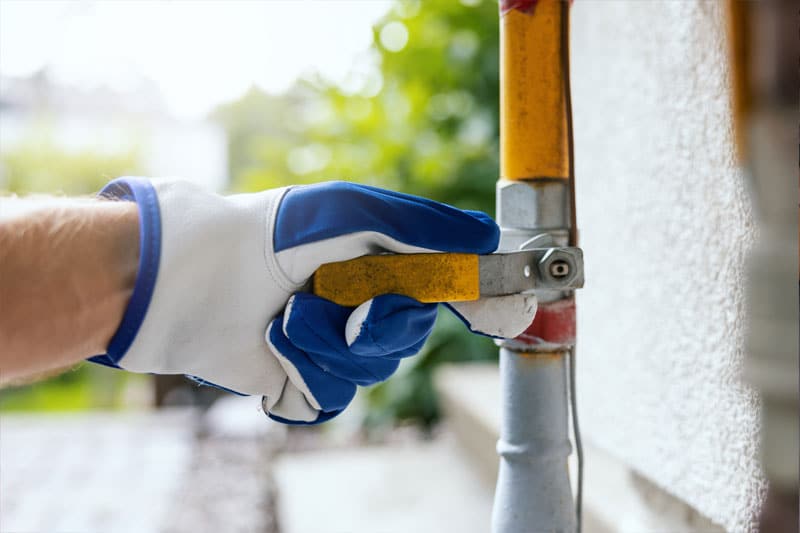
Problems With Gas Line? Contact Us!
Gas Line Repair and Replacement
Gas lines play a crucial role in supplying natural gas or propane to various appliances in residential and commercial buildings. They ensure the efficient operation of water heaters, stoves, furnaces, fireplaces, and more. Without properly functioning gas lines, it would be challenging to maintain a comfortable living environment or carry out everyday tasks. Therefore, it is vital to address any gas line problems promptly to avoid disruptions and potential hazards.
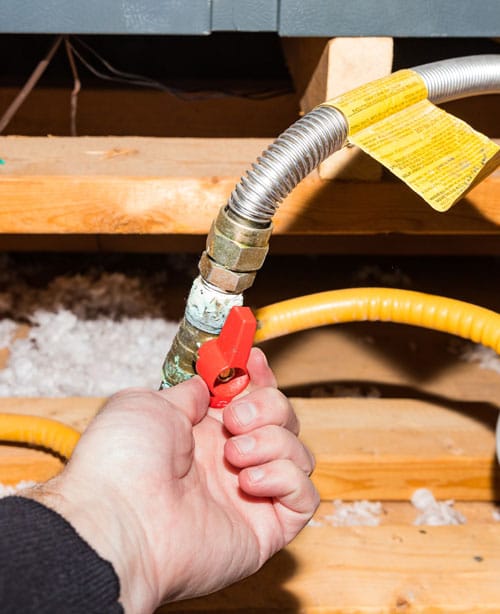
Signs of Gas Line Issues
LOOK OUT FOR THESE SIGNSRecognizing the signs of gas line issues is essential for the safety of occupants and property. Here are some common indicators that there might be a problem with your gas lines:
Foul Odor
One of the most prominent signs of a gas leak is a foul odor similar to rotten eggs. Natural gas is odorless, but a distinct odorant called mercaptan is added to it to make it easily detectable. If you notice a strong, unpleasant smell in your home or near the gas lines, it could indicate a gas leak that requires immediate attention.
Hissing Sounds
Gas leaks can also produce hissing or whistling sounds near the gas lines. These sounds often indicate the presence of a leak or damage in the gas line system. If you hear any unusual noises coming from your gas lines, it is crucial to investigate the issue further to ensure your safety.
High Gas Bills
A sudden increase in your gas bills without a corresponding change in usage patterns can be a sign of a gas line problem.
High Gas Bills
A sudden increase in your gas bills without a corresponding change in usage patterns can be a sign of a gas line problem. Leaking gas lines can lead to wastage of gas, resulting in higher bills. If you notice a significant spike in your gas expenses, it’s essential to investigate the issue to identify and address any underlying gas line issues.
Dead Vegetation
Gas leaks can have detrimental effects on surrounding vegetation. If you notice patches of dead or discolored vegetation in your yard or near the gas lines, it could be an indication of a gas leak. The toxic nature of gas can harm plants and inhibit their growth. Monitoring the health of nearby vegetation can help you identify potential gas line problems.
Risks of Damaged Gas Lines
DON’T NEGLECT GAS LINE PROBLEMS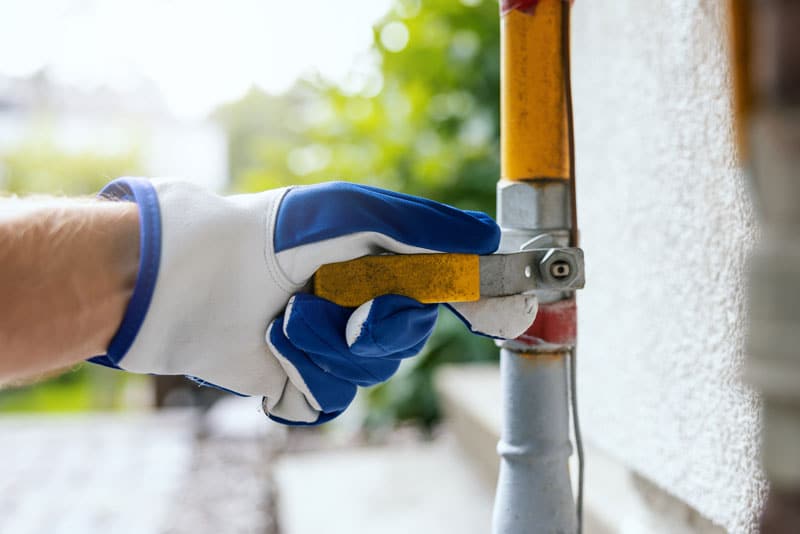
Ignoring gas line issues can have severe consequences for both property and personal safety. It’s important to be aware of the risks associated with damaged gas lines to prioritize their timely repair or replacement.
Fire and Explosions
Gas leaks create a high risk of fire and explosions. Natural gas is highly flammable, and even a small spark can ignite it, leading to a dangerous situation. A damaged gas line increases the likelihood of gas leakage, which can create a hazardous environment and endanger lives and property.
Health Hazards
Exposure to natural gas can pose serious health risks. Inhaling gas fumes can cause headaches, dizziness, nausea, and even asphyxiation in extreme cases. Prolonged exposure can have long-term health consequences. It is crucial to address gas line issues promptly to ensure the well-being of everyone in the vicinity.
Inspection and Diagnosis
Gas line repair services typically start with a thorough inspection and diagnosis of the gas line system. Professionals will assess the condition of the lines, check for leaks, and identify any underlying issues. This comprehensive evaluation helps them determine the most appropriate course of action for repair or replacement.
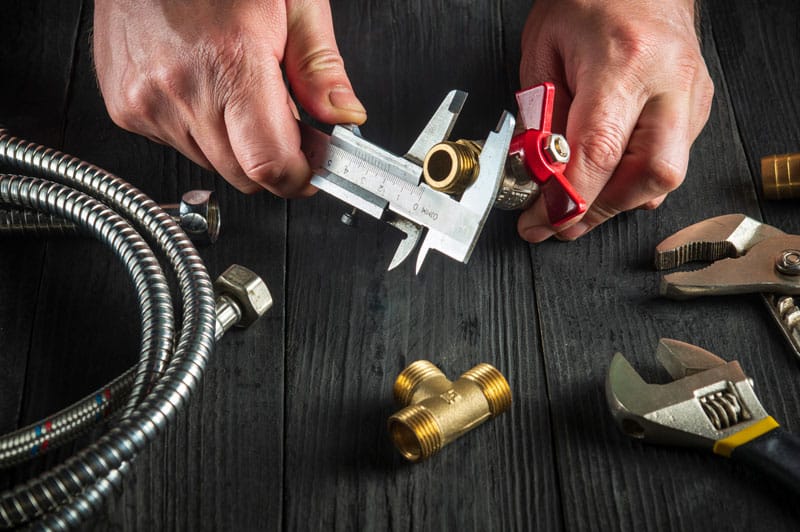
Gas Line Repair Services
COUNT ON HACK’S PLUMBING & DRAINSWhen faced with gas line problems, it is essential to rely on professional gas line repair services. These experts have the knowledge, skills, and tools to handle gas line repairs and replacements safely and efficiently.
Professional Expertise
Gas line repair specialists possess the necessary expertise to diagnose and address a wide range of gas line issues. They have in-depth knowledge of gas line systems and can identify leaks, damages, or other potential problems accurately. Trusting professionals ensures that the repair work is done correctly, minimizing the risk of future complications.
Gas Line Replacement Options
In some cases, gas line replacement may be necessary, especially for older or extensively damaged systems. Gas line repair services can guide you through the replacement process, helping you choose the right materials and ensuring the installation adheres to safety standards and regulations. Gas line replacement offers a long-term solution and enhances the overall efficiency and safety of the gas supply.
Hiring a Gas Line Repair Specialist
When selecting a gas line repair specialist, it’s crucial to consider several factors to ensure you hire a qualified and reliable professional.
Gas Line FAQ
FREQUENTLY ASKED QUESTIONS1. Can I repair gas lines myself?
It is recommended to hire professionals for gas line repairs due to the potential risks involved. Gas line systems require expertise and specialized equipment to ensure safety and proper repairs.
2. How do I detect a gas leak?
Gas leaks can be detected by a distinct odor similar to rotten eggs. You may also notice hissing sounds near the gas lines, dead vegetation, or a sudden increase in gas bills. If you suspect a gas leak, evacuate the premises immediately and contact a professional gas line repair service.
3. How often should I have my gas lines inspected?
It is recommended to have your gas lines inspected by a professional at least once a year. Regular inspections can help identify any potential issues and ensure the safety and efficiency of your gas line system.
4. Can I use gas appliances during a gas line repair?
No, it is important to turn off and avoid using any gas appliances during a gas line repair. This precaution is necessary to minimize the risk of gas leaks or accidents. Once the repairs are complete and the gas line has been deemed safe, you can resume using your gas appliances.
5. What should I do if I smell gas in my home?
If you smell gas in your home, follow these steps:
- Do not use any electrical switches or devices.
- Do not light a match or create any source of ignition.
- Open windows and doors to ventilate the area.
- Evacuate the premises and call your gas utility company or emergency services immediately.
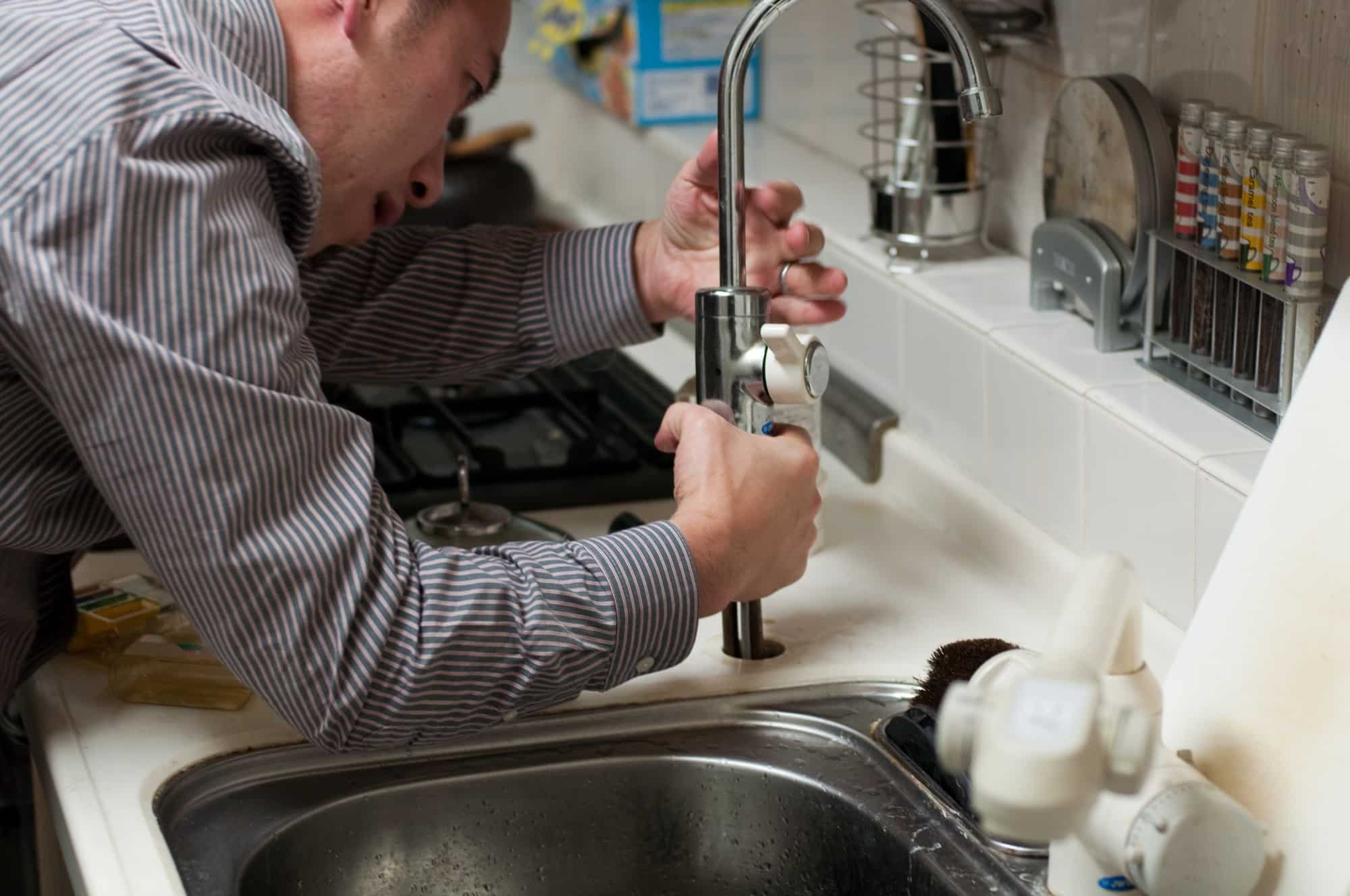
Choose Hack’s Plumbing & Drain
ALWAYS ON TIME & ON BUDGETHack’s Plumbing & Drain is a family-owned and operated business, we treat our clients as family.
We will never oversell you or do a repair that is not necessary our goal is to have you as a client for years to come.
We grew our business based on customer referrals. Give us a call today and experience the Hack’s Plumbing & Drain difference.

NEED AN EXPERIENCED GAS LINE PLUMBER?
CONTACT USFrequently Asked Questions We Receive at Hack’s Plumbing
What types of pipes are commonly used for gas lines?
Popular materials for gas lines include black iron, copper, polyethylene (PE), and corrugated stainless steel tubing (CSST). Black iron and copper are highly durable and often used in indoor settings, while PE is flexible and corrosion-resistant, making it ideal for underground installations
How do I know if my gas line needs repair or replacement?
Signs that your gas line may need attention include unusual gas odors, hissing sounds near the line, higher gas bills, or dead vegetation around the gas line area. If you experience any of these, contact a professional immediately to inspect and repair any leaks
How often should gas lines be inspected?
Experts recommend inspecting gas lines annually, especially if they’re old or located in areas exposed to the elements. Regular inspections can identify small issues before they become serious safety risks
What is involved in a gas line pressure test?
Pressure testing involves pressurizing the gas line beyond normal levels to check for any weak points or leaks. This step is crucial after any installation or repair to ensure the system is secure and compliant with safety standards
What safety precautions should I take with gas appliances?
Ensure proper ventilation, maintain a safe clearance from flammable materials, and regularly inspect connections for leaks. Installing a gas detector near appliances can also alert you to leaks early on

